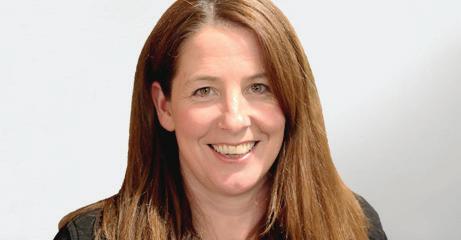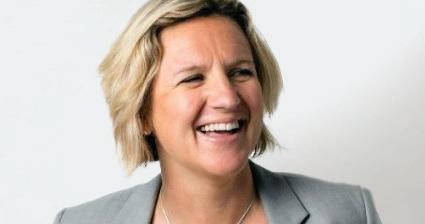


















Between the unforeseen risks of a pandemic, the climate crisis and global supply chain issues, business leaders, policymakers and investors around the world are realising the need to make ESG an essential business priority. But while developing the strategy itself might feel like a daunting task, integrating and operationalising the strategy can be even harder and more complex.
To do so successfully requires real change across the organisation. And with many companies already falling behind, it’s critical to get the change right the first time.
With stakes this high, we believe companies should be learning from each other on what works and what doesn’t to achieve their environmental and social impact goals.
Celeste has co-led Coutts through the B Corp Certification process and now actively speaks to clients, prospects and suppliers about implementing and improving their own sustainability strategies. Celeste was also recently named a Rising Star at The UK National Sustainability Awards.
Danielle is the Group Sustainability Director at the BBC and has been working in the sustainability sector for the past 15+ years. She is a Net Zero sustainability expert who passionately believes in impact reduction and scientific measurement to achieve real change.


Rosie is the Co-CEO of COOK, alongside her brother, Edward. COOK nourishes the nation through 94 retail stores, 800 concessions, and a rapidly expanding delivery business. A founding member of the B Corp movement in 2013, COOK is recognised for its pioneering projects, RAW Talent programme and Kindness Fund.

Achieving your ESG ambitions is incredibly complex…
DANIELLE MULDER Group Sustainability Director, BBC
ROSIE BROWN Co-CEO, COOKLong-term benefits for all vs. short-term gain for few Mis-aligned leadership incentives Increased cross-functional collaboration Big system issue beyond your control Involves everyone External partnering Multitude of change projects Unfamiliar concepts
TRUTH 1
There are real headwinds that threaten any organisation’s environmental and social impact efforts.
Inflation, supply chain disruption, rising energy costs, and the war in Ukraine are real challenges. You will need to determine where you’re willing to forgo short-term gain for long-term success and then equip your people to navigate the challenges they’ll face along the way. Otherwise, you risk your commitments falling to the bottom of everyone’s list, or worse, put off indefinitely.
TRUTH 2
The why will be different for every single employee.
It’s not enough to say environmental and social impact efforts are the “right” thing to do – for your business or the world. Helping everyone understand what ESG is, why it’s important, and what you as a business are focusing on (and why) must be a priority – it gives employees a reason to believe and understand how they can contribute to their role.
TRUTH 3
A ‘one size fits all’ model will not work.
Employees will be uniquely impacted and will require different levels of effort. This requires a tiered approach to the change, balancing garnering everyones’ support but only requiring some to make it part of their job.




For those who have a job to do, give them a clear roadmap that translates your ESG commitments for them and breaks down what’s expected at each stage of the journey. This work often relies on many teams achieving smaller goals that add up to a larger one.

TRUTH 4
Achieving successful environmental and social impact requires many groups coming together to play their part. When this happens, clear accountability can be lacking, and teams will defer to others to take the lead.
To avoid this, institute a strong governance structure to get the work done. This structure should be sponsored and led by the CEO, who needs to be the real owner and driver of these efforts and who will measure themselves against its success.
TRUTH 5
Avoid environmental and social impact efforts becoming the “flavour of the month” and something spotlighted only on Earth Day. This work cannot be viewed as a single campaign or initiative. Environmental and social impact must be fully integrated into your business strategy and processes, as well as employee experience and culture.

We help clients change in 4 ways:
Reduce risk of change failure by aligning the C-Suite

Culture Change
Make employee mindset and behaviour change drivers of business goals

22 YEARS
Operating as Omnicom Group’s global change consultancy
Daggerwing was named a Global Leader in communications and change management consulting*

70% FORTUNE 500
Percentage of core Daggerwing clients in the Fortune 500
35 COUNTRIES
Breadth of countries where Daggerwing has worked with clients over the past 3 years
Organisational Transformation Bust silos, redefine roles and change ways of working
Employee Experience
Engage and equip employees as the advocates and drivers of change
Our approach: People focused. Psychology based.
We use proven methods grounded in business and psychology to tap into why people do and do not want to change…
We use that human insight to design and execute a strategy that shifts the mindsets and behaviours of your people…
We work shoulder to shoulder with you through every step – until your people become the advocates and drivers of change.
We’ve proudly helped these companies do change right the first time



Focusing on people – the hardest part of change – will make change happen and make it last.
our
at Anthropy:
Andy Rugeroni, Senior Principal arugeroni@daggerwinggroup.com
Liz Rickard, Senior Principal lrickard@daggerwinggroup.com